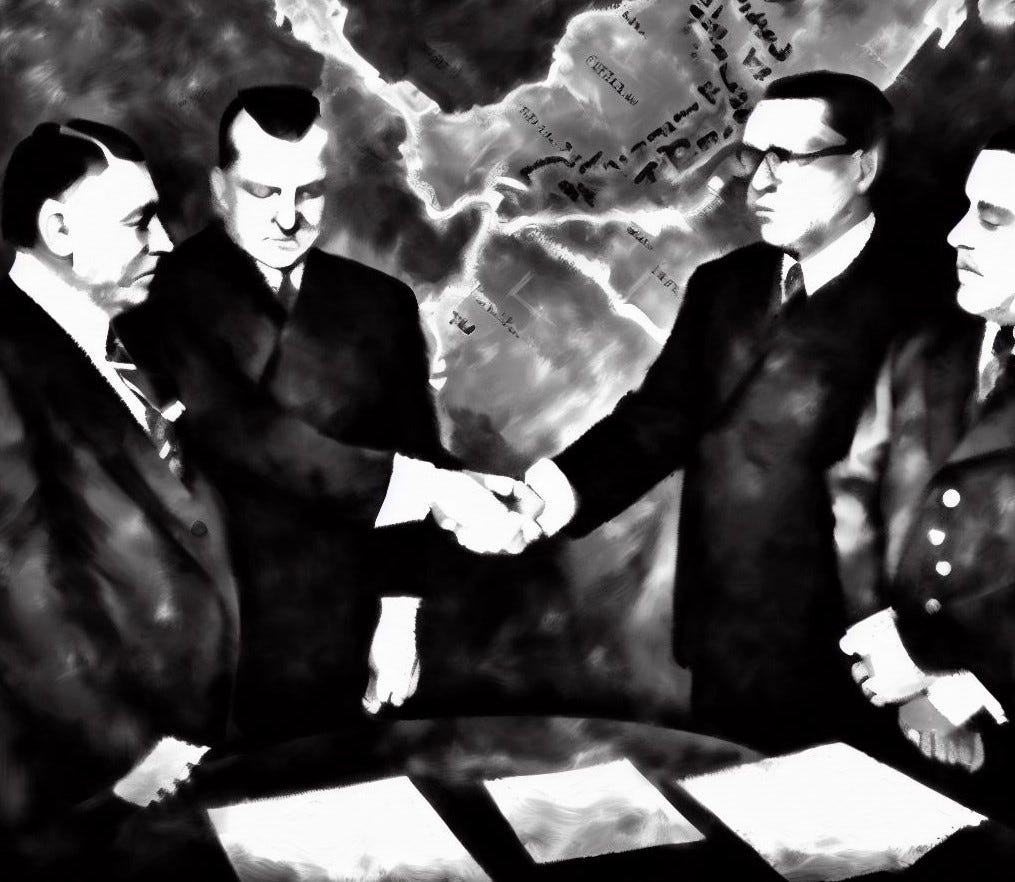“Peace for our time.”
It was September, 1938. Britain and Nazi Germany had just signed an agreement designed to prevent war.
The horrors of World War I were still fresh in the collective memory of a generation. The trenches, the gas, the unrelenting machine gun fire—these were nightmares Europe was desperate to avoid repeating. As such, the nations of Europe, particularly Britain and France, adopted a policy of appeasement, a strategy of making political or material concessions to an aggressive power in order to avoid conflict.
The Munich Agreement permitted Nazi Germany's annexation of the Sudetenland in western Czechoslovakia. Leaders believed that by ceding this territory to Hitler, his ambitions would be sated and a broader conflict could be averted.
History may not repeat, but it certainly does rhyme quite often.
Unfortunately, this policy was built on a fundamental misjudgment of Hitler's intentions. Rather than interpreting appeasement as a gesture of peace, the Nazi regime saw it …
Keep reading with a 7-day free trial
Subscribe to Goatfury Writes to keep reading this post and get 7 days of free access to the full post archives.




